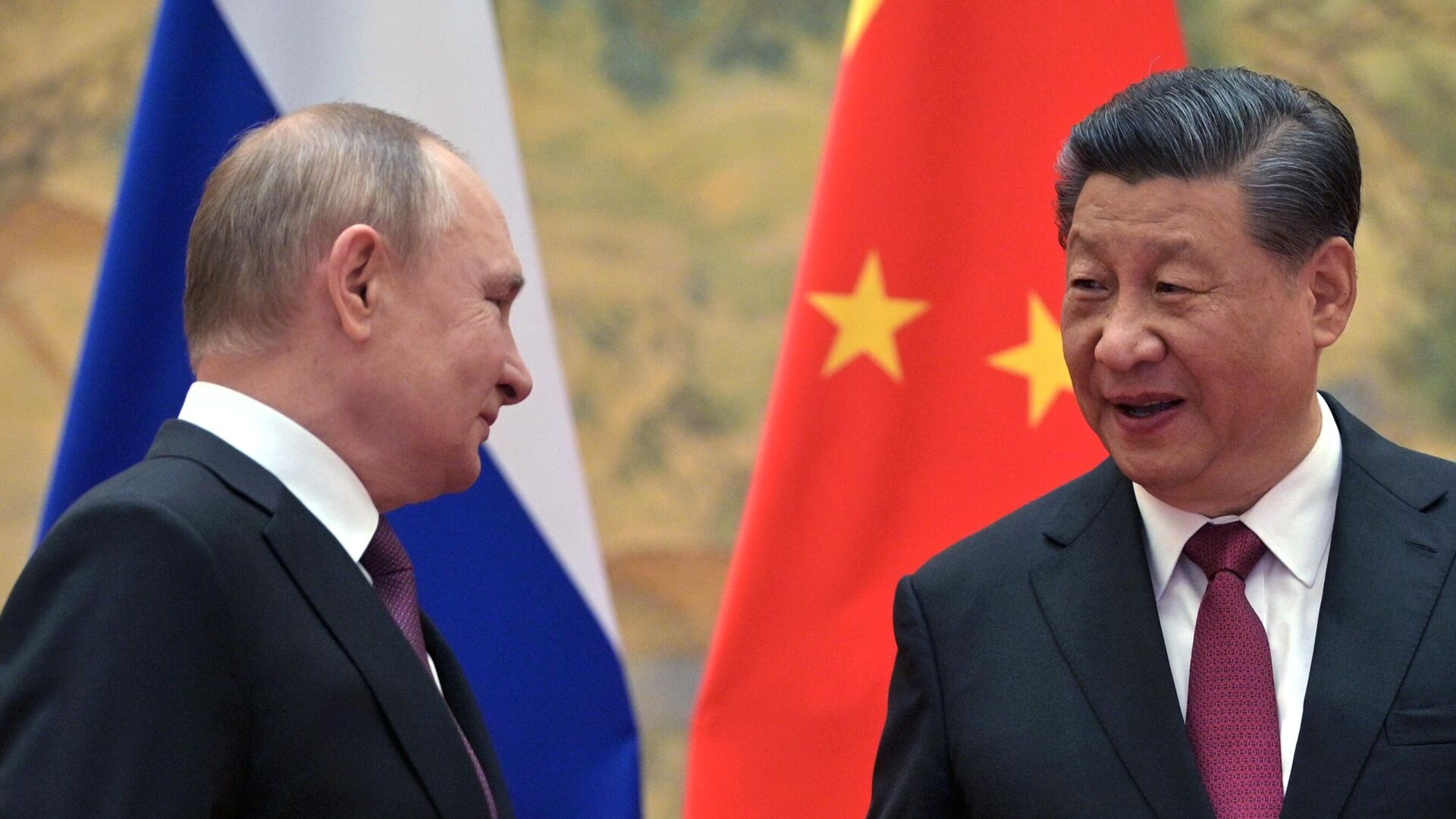https://sputnikglobe.com/20220204/russia-china-alignment-caused-not-only-by-us-policy-but-also-economic-interests---expert-1092758284.html
Russia-China Alignment Caused Not Only by US Policy, But Also Economic Interests, Analyst Says
Russia-China Alignment Caused Not Only by US Policy, But Also Economic Interests, Analyst Says
Sputnik International
MOSCOW (Sputnik) - A recently published joint statement of Russia and China demonstrates a remarkable unity of interests between the two countries, brought... 04.02.2022, Sputnik International
2022-02-04T14:46+0000
2022-02-04T14:46+0000
2022-02-04T16:48+0000
russia
ukraine
china
us
opinion
https://cdn1.img.sputnikglobe.com/img/07e6/02/04/1092758259_0:0:2693:1515_1920x0_80_0_0_ccc5db73990d88b02ed6f7d3098a52b1.jpg
Earlier in the day, Russia and China issued a joint statement following talks between presidents Vladimir Putin and Xi Jinping in Beijing."The joint statement is quite a remarkable document. It shows tremendous commonality of purpose between China and Russia in terms of their visions for a post-pandemic world order. In addition, the statement does indicate Beijing’s support for Moscow on some specific issues. For instance, it explicitly opposes NATO’s enlargement, supports Russian proposals for security guarantees in Europe and opposes deployment of US ground-based missiles in Asia-Pacific and Europe," Manoj Kewalramani, the chairperson of the Indo-Pacific Studies Program at the Takshashila Institution, told Sputnik on Friday.The expert added as a caveat that common purposes do not necessarily translate into shared approaches and policies, noting that Moscow and Beijing also have different interests in the Indo-Pacific and Europe.Various US policies, including the creation of the AUKUS defense partnership, have played their part, but other factors have prompted this development as well, the expert said.Tensions between Russia and the United States have escalated over the past several months after Russia was accused of building up troops near the Ukrainian border and allegedly preparing for an invasion. Moscow has denied the accusations, pointing to NATO's military activity near Russian borders, which it deems a threat to its national security.On Monday, the UN Security Council voted to proceed with a public meeting on Ukraine, with Russia and China opposing the move. Chinese Permanent Representative to the United Nations Zhang Jun said that China does not agree that Russia's deployment of troops near the Ukrainian border undermines international security and called NATO's expansion "a problem difficult to circumvent."In December, Moscow published its proposals for the United States and NATO on security guarantees. The proposals, if agreed to, would prevent NATO from expanding in Eastern Europe and prohibit the US and Russia from deploying intermediate and shorter-range missiles within striking distance of each other's territory, among other terms.
ukraine
china
Sputnik International
feedback@sputniknews.com
+74956456601
MIA „Rosiya Segodnya“
2022
Sputnik International
feedback@sputniknews.com
+74956456601
MIA „Rosiya Segodnya“
News
en_EN
Sputnik International
feedback@sputniknews.com
+74956456601
MIA „Rosiya Segodnya“
Sputnik International
feedback@sputniknews.com
+74956456601
MIA „Rosiya Segodnya“
ukraine, china, us, opinion
ukraine, china, us, opinion
Russia-China Alignment Caused Not Only by US Policy, But Also Economic Interests, Analyst Says
14:46 GMT 04.02.2022 (Updated: 16:48 GMT 04.02.2022) MOSCOW (Sputnik) - A recently published joint statement of Russia and China demonstrates a remarkable unity of interests between the two countries, brought about not only by US and NATO policies but shared economic interests and a desire to safeguard stability in Europe and Asia.
Earlier in the day, Russia and China
issued a joint statement following talks between presidents Vladimir Putin and Xi Jinping in Beijing.
"The joint statement is quite a remarkable document. It shows tremendous commonality of purpose between China and Russia in terms of their visions for a post-pandemic world order. In addition, the statement does indicate Beijing’s support for Moscow on some specific issues. For instance,
it explicitly opposes NATO’s enlargement, supports Russian proposals for security guarantees in Europe and opposes deployment of US ground-based missiles in Asia-Pacific and Europe," Manoj Kewalramani, the chairperson of the Indo-Pacific Studies Program at the Takshashila Institution, told Sputnik on Friday.
The expert added as a caveat that common purposes do not necessarily translate into shared approaches and policies, noting that Moscow and Beijing also have different interests in the Indo-Pacific and Europe.
Various US policies, including the
creation of the AUKUS defense partnership, have played their part, but other factors have prompted this development as well, the expert said.
"Indeed US policy has had a role to play. But the proximity between Moscow and Beijing has been the product of a gradual process that has unfolded over the past three decades. This has been chiefly driven by economic interests, a desire for stability along their border and the objective of maintaining a favourable balance of power amid the changing geopolitical environment. Even without AUKUS, these imperatives would have persisted," Kewalramani explained.
Tensions between Russia and the United States have escalated over the past several months after Russia was accused of building up
troops near the Ukrainian border and allegedly preparing for an invasion. Moscow has denied the accusations, pointing to NATO's military activity near Russian borders, which it deems a threat to its national security.
On Monday, the UN Security Council
voted to proceed with a public meeting on Ukraine, with Russia and China opposing the move. Chinese Permanent Representative to the United Nations Zhang Jun said that China does not agree that Russia's deployment of troops near the Ukrainian border undermines international security and called NATO's expansion "a problem difficult to circumvent."
In December, Moscow published its proposals for the United States and NATO on
security guarantees. The proposals, if agreed to, would prevent NATO from expanding in Eastern Europe and prohibit the US and Russia from deploying intermediate and shorter-range missiles within striking distance of each other's territory, among other terms.




